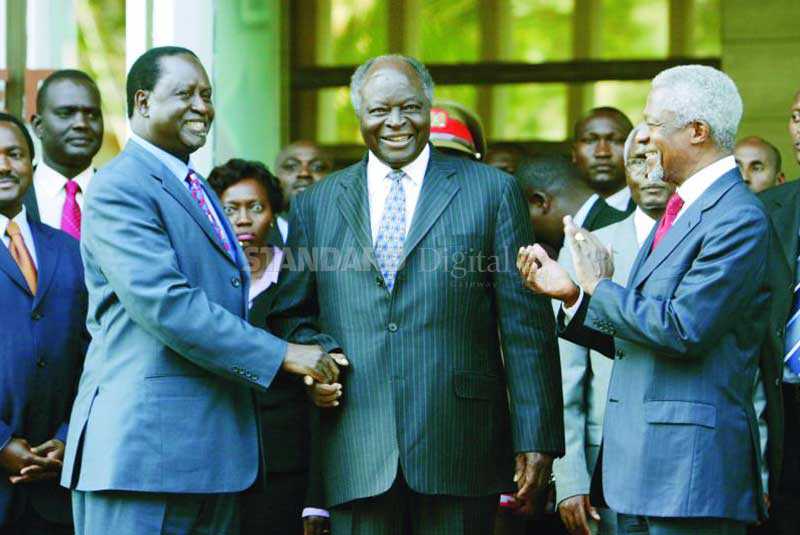×
The Standard e-Paper
Home To Bold Columnists

Opposition leader Raila Odinga has, for the umpteenth time in his political career, reinvented himself by pulling the rug from under the feet of political friend and foe.
Yesterday, Raila, once a sworn enemy of the current regime, stood shoulder-to-shoulder with President Uhuru Kenyatta and toast to new beginnings.